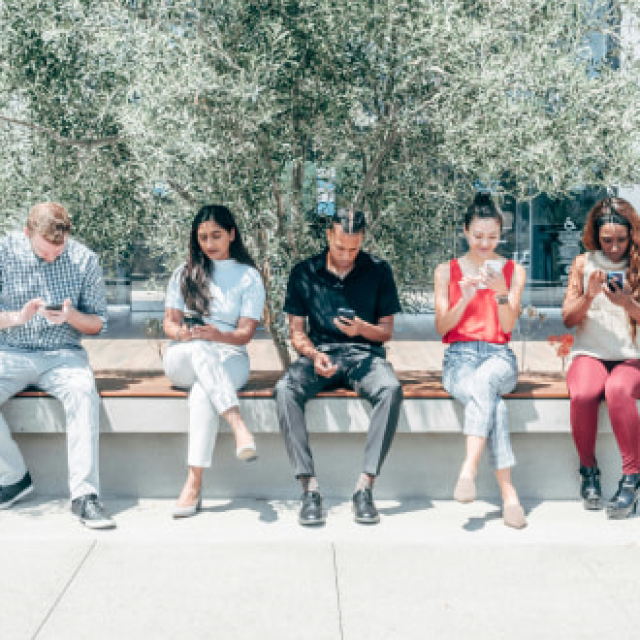
It hardly matters how old you are, smartphones are taking up more and more of our time. Being reachable every day is something that no less than 76% of Dutch people find important. But how do we deal with someone who constantly looks at his or her smartphone during a conversation?
A study* on the telephone use of the Dutch shows that two out of three people want to be reachable at all times. Moreover, this study (commissioned by Greetz, known for its cards) shows that 91% of the Dutch find it annoying when someone constantly looks at their smartphone during a conversation. However, this is responded to in different ways. 52% are annoyed by this fact and immediately say something about it. But a smaller group of Dutch people (17%) do not immediately express their irritation and wait for a more suitable moment to say something about it. In addition, 14% are inclined to pick up their smartphone themselves when their conversation partner does so.
Urge to always be available
Since the arrival of the smartphone, daily use has grown at an ever-increasing rate. The average screen time of Dutch people is 2 hours and 20 minutes per day. It is therefore not surprising that 76% of Dutch people find it important to always be reachable. About half of the respondents even find it important to respond quickly to messages they receive. Letting someone wait a few hours for a response? Half of the Dutch will not do that so quickly. A number of respondents indicate that a smartphone positively promotes contact with loved ones. For example, 35% have more contact with friends and family since using the smartphone.
Healthy balance
A healthy work-life balance is important. But let’s not forget that it is also important to find a healthy balance between smartphone use and personal interaction. Some 46% of respondents find a healthy balance between these important. For 7% this is absolutely not the case. This percentage of respondents say that it is unthinkable to go through life without a smartphone.
* The survey was conducted among 1,000 Dutch respondents by fieldwork agency Panel Inzicht.